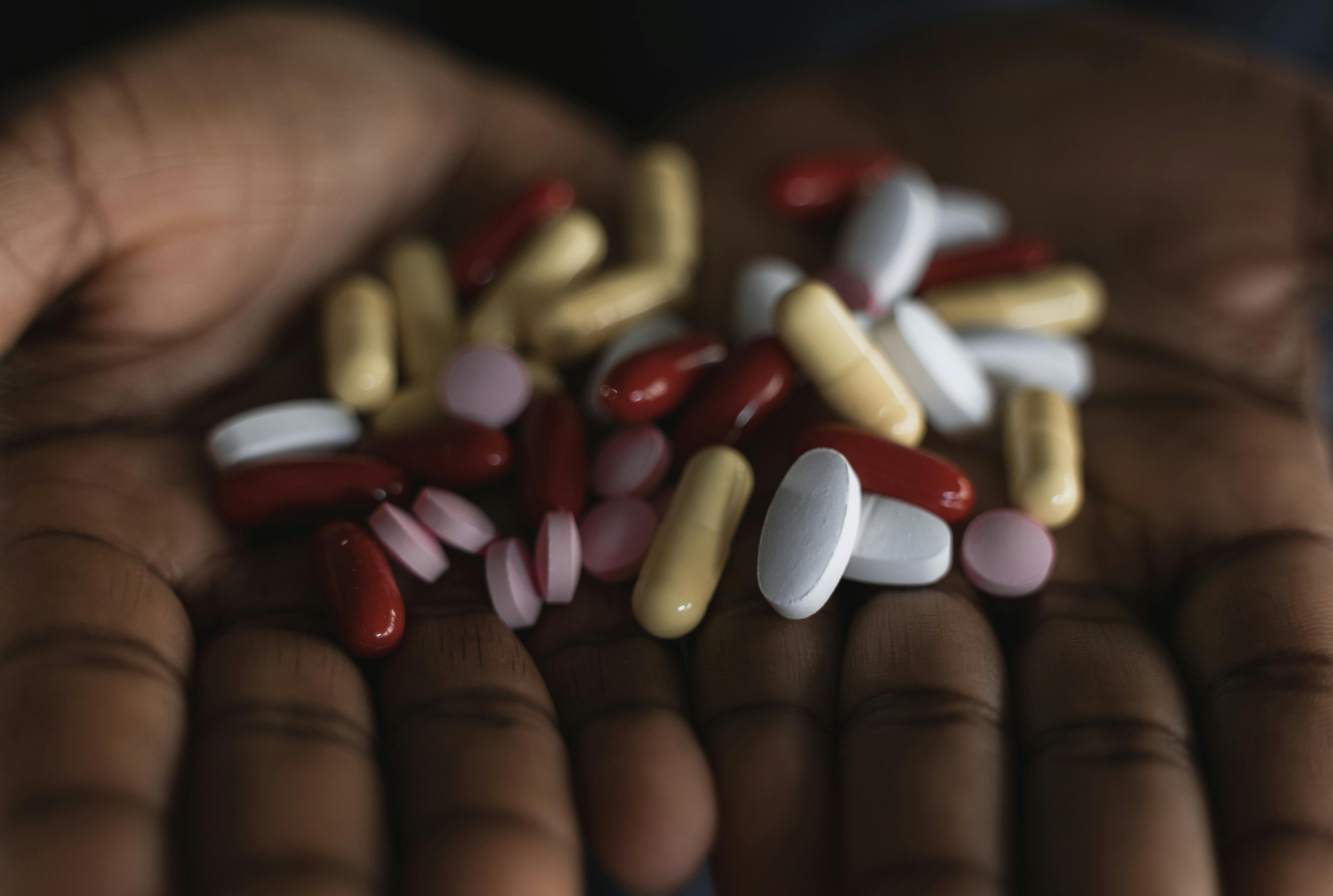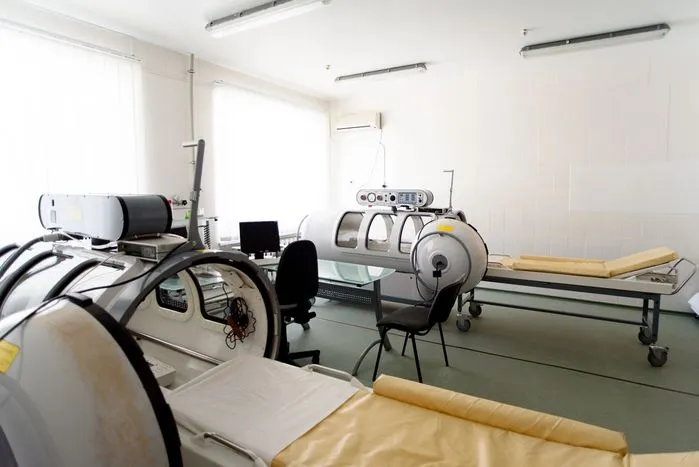Wound healing is a vital part of maintaining overall health, as our bodies rely on a smooth and efficient recovery process to restore damaged tissue and prevent infections. However, healing isn't just about time—it requires proper care and nutrition. That's where wound healing supplements come in.
Nutrition plays a significant role in supporting the body's natural healing processes, and adding the right supplements can enhance this even further. Specific vitamins, minerals, and nutrients promote tissue repair, reduce inflammation, and speed recovery.
Common wound healing supplements include Vitamin C, Zinc, and Omega-3 fatty acids. These and other nutrients help ensure the body has what it needs to heal quickly and effectively.
Understanding the Wound Healing Process
1. Hemostasis
This is the first stage, where the body works to stop the bleeding immediately after injury. Blood vessels constrict, and clotting factors are activated to form a blood clot, preventing further blood loss. During this phase, the body demands nutrients that support blood clotting, such as Vitamin K and calcium.
While this stage is relatively short, proper nutrition helps ensure that blood clotting occurs efficiently. Wound healing supplements like Vitamin K can be especially beneficial in this phase, as they enhance the body's ability to form clots and initiate healing.
2. Inflammation
The inflammation phase begins shortly after the injury and lasts several days. White blood cells, particularly neutrophils, rush to the wound site to destroy bacteria and remove debris. This is a critical time for preventing infection, but inflammation must also be controlled to avoid damage to healthy tissue.
The body’s need for antioxidants and anti-inflammatory nutrients increases during this stage. Wound-healing supplements such as Vitamin C, Vitamin E, and Omega-3 fatty acids are crucial because they help manage inflammation and protect the surrounding tissue from oxidative stress. Zinc also boosts immune function, essential for fighting infections and keeping the wound site clean.
3. Proliferation
In the proliferation stage, the body begins to repair the wound by generating new tissue. Collagen, a structural protein, is produced during this phase to help rebuild the tissue matrix, while new blood vessels form to supply oxygen and nutrients to the healing area.
Nutritional demands are highest during this stage, particularly for proteins and amino acids, which are the building blocks of new tissue. Wound healing supplements such as collagen peptides, arginine, and glutamine are vital here. Arginine helps stimulate collagen production, while glutamine supports cell regeneration and enhances immune function.
Additionally, Vitamin C is essential in this phase because it aids in collagen synthesis and helps the new tissue form properly. The wound may not heal efficiently or leave weakened scar tissue without adequate Vitamin C.
4. Maturation
The final stage, maturation, can last several months or even years. In this phase, the newly formed tissue is strengthened and remodeled to regain full functionality. Collagen fibers continue to align and improve tensile strength while blood vessels return to a more stable state.
While the nutritional demands during this phase are not as intense as in earlier stages, wound healing supplements like collagen and Vitamin E can help ensure proper tissue repair and minimize scarring. Zinc and copper also play a role in finalizing tissue development and promoting skin strength and elasticity.
How the Body’s Nutritional Needs Change
The body’s nutritional requirements shift throughout the wound healing process, from clot formation to inflammation control to tissue regeneration. A well-rounded diet can support this, but wound healing supplements offer concentrated forms of the critical nutrients required at each stage.
For example, anti-inflammatory supplements are prioritized in the inflammation stage, while protein and collagen-boosting supplements are essential in the proliferation stage. Understanding the body’s evolving needs allows individuals to choose the right supplements at the right time, speeding up recovery and ensuring the wound heals effectively.
Importance of the Right Nutrients
Supplementing with the proper nutrients at the correct stage of wound healing is crucial for ensuring the process runs smoothly. A deficiency in any critical nutrient could delay healing or cause complications such as infection, improper scar formation, or chronic wounds.
By incorporating wound healing supplements into a recovery plan, individuals can give their bodies the extra support they need to heal faster and more effectively.
Importance of Consulting Healthcare Professionals Before Starting Supplements
Before starting any regimen of wound healing supplements, it is essential to consult with a healthcare professional. While supplements can significantly benefit the healing process, individual needs vary depending on factors such as the type and severity of the wound, underlying health conditions, and current medications.
Healthcare providers can recommend the right combination of supplements and adjust dosages based on the individual’s needs. For example, someone with a zinc deficiency may require higher doses, while someone taking anticoagulant medications should be cautious with supplements like Vitamin K. Additionally, certain supplements may interact with medications or other treatments, so professional guidance ensures a safe and effective recovery plan.
Best Wound Healing Supplements
When promoting faster and more effective recovery, wound healing supplements provide vital nutrients that support tissue repair, reduce inflammation, and boost the body’s natural healing processes. Below are some of the best supplements for wound healing, categorized by their nutrient type.
1. Vitamins
Vitamin C:
Vitamin C plays a crucial role in wound healing by stimulating the production of collagen, a protein that helps rebuild damaged tissue and strengthen new skin. As an antioxidant, vitamin C protects the wound from free radical damage, allowing for smoother and faster tissue repair. It is one of the most essential wound healing supplements because it directly supports the formation of new tissue and enhances the overall healing process.
Vitamin A:
Vitamin A accelerates wound healing by promoting cell production and reducing inflammation. It helps regulate the immune response at the wound site, decreasing the risk of infection. Additionally, Vitamin A is involved in collagen production and epithelial cell growth, which are vital to effective wound closure and tissue regeneration.
Vitamin E:
Known for its antioxidant properties, Vitamin E helps reduce oxidative stress in the wound area, speeding up recovery and minimizing scarring. By protecting cells from free radical damage, Vitamin E ensures that the newly forming tissue remains healthy, aiding in smoother healing and scar reduction. Many consider Vitamin E a valuable part of wound healing supplements, particularly in improving skin texture and elasticity during recovery.
2. Minerals
Zinc:
Zinc is one of the most essential minerals for wound healing because it supports immune function and tissue growth. It helps stimulate the production of cells that close the wound and promotes the development of new skin tissue. Zinc also helps control inflammation, reducing the risk of infection and ensuring that wounds heal properly. For these reasons, it is often recommended as a primary ingredient in wound healing supplements.
Copper:
Copper is essential for forming red blood cells and collagen, which is crucial for effective wound healing. It aids in the stabilization of new blood vessels and ensures that oxygen and nutrients are delivered to the wound site. Copper also plays a role in the cross-linking of collagen fibers, which improves the strength and durability of the newly formed tissue.
3. Amino Acids & Proteins
Arginine:
Arginine, an amino acid, is known for enhancing collagen production and improving the immune response during wound healing. By increasing nitric oxide levels, arginine helps improve blood flow to the wound, delivering essential nutrients and oxygen that promote faster tissue regeneration. This makes it a key component of wound healing supplements, especially in cases where tissue repair needs to be accelerated.
Glutamine:
Glutamine is another amino acid that supports tissue repair and strengthens the immune system. It acts as a fuel source for immune cells, enhancing their ability to fight infections at the wound site. Additionally, glutamine helps maintain the integrity of the tissue around the wound, reducing the risk of further damage and speeding up the healing process.
4. Other Key Nutrients
Omega-3 Fatty Acids:
Omega-3 fatty acids are known for their anti-inflammatory properties, essential for reducing swelling and promoting faster healing. By controlling inflammation, omega-3s help create a favorable environment for tissue repair. These essential fatty acids also improve blood flow to the wound site, ensuring that the body’s natural healing mechanisms can function at full capacity.
Probiotics:
Probiotics are beneficial bacteria that help maintain a healthy gut and immune system. While they are more commonly known for their digestive benefits, probiotics also play a role in wound healing by reducing the risk of infection. By promoting a balanced immune response, probiotics support overall health, which is critical when the body is focused on recovering from an injury.
Choosing the Best Wound Healing Supplements
Selecting the right wound-healing supplements can significantly affect how quickly and effectively the body recovers from injuries. However, with so many options available, choosing high-quality, adequately dosed, and genuinely effective supplements is essential. In this section, we'll explore the key factors to consider when selecting supplements and how to avoid common marketing traps.
Factors to Consider When Choosing Wound Healing Supplements
When evaluating wound healing supplements, it’s essential to focus on three main factors: quality, dosage, and effectiveness. These considerations ensure that you’re getting the most benefit from the supplements and that they will positively impact your recovery.
Quality:
High-quality supplements use pure, well-sourced ingredients free from harmful additives and fillers. Quality is crucial because low-grade supplements may contain ineffective ingredients or unnecessary fillers that offer little to no benefit. To ensure you’re purchasing high-quality wound healing supplements, look for third-party products tested for purity and potency. Certifications from reputable organizations like NSF, USP, or ConsumerLab provide extra assurance that the supplements meet strict quality standards.
Dosage:
The effectiveness of wound-healing supplements is closely tied to proper dosage. Too few nutrients may not provide the desired healing support, while too much can lead to potential side effects or toxicity. For example, while Vitamin C is essential for collagen production, excessively high doses can cause gastrointestinal discomfort or other issues. It's important to follow dosage recommendations provided by healthcare professionals or reputable manufacturers and avoid the temptation to "megadose" unless advised.
Certain supplements, like Zinc, must be taken at the correct dose to avoid adverse side effects, such as impaired copper absorption, which can lead to additional health problems. Consulting with a healthcare provider is essential to determining the proper dosage for your specific needs and the stage of healing you’re in.
Effectiveness:
The effectiveness of wound healing supplements largely depends on their ingredients' bioavailability. Bioavailability refers to how easily the body can absorb and use the nutrients. Highly bioavailable supplements allow the body to utilize the active ingredients more efficiently, leading to better healing outcomes.
For example, Vitamin C in the form of "ascorbic acid" is easily absorbed by the body and is highly effective for collagen production. Similarly, Zinc gluconate or Zinc citrate are more bioavailable forms of Zinc that ensure the body receives enough of the mineral to support tissue repair. When evaluating supplements, check the form of the active ingredients and opt for those known to be well-absorbed by the body.
How to Assess Supplement Labels and Avoid Common Marketing Traps
The supplement industry has products that make bold claims about their benefits. To choose the best wound healing supplements, it’s essential to assess the label carefully and avoid falling for misleading marketing tactics. Here are some tips to help you make informed decisions:
Read the Ingredients List:
Always read the ingredients list to ensure the product contains the nutrients you need for wound healing, such as Vitamin C, Zinc, or Omega-3 fatty acids. Be cautious of products that contain long lists of unnecessary fillers or additives, which may dilute the effectiveness of the active ingredients. Some low-quality supplements may use artificial colors, preservatives, or other chemicals that can interfere with your body’s healing process.
Check for Key Nutrients:
Look for specific ingredients that are known to promote wound healing. For example, if a supplement claims to support tissue repair but doesn’t contain essential nutrients like Vitamin C or Zinc, it may not be as effective as advertised. Ensure the wound healing supplements you choose contain the critical vitamins, minerals, and amino acids needed to enhance the healing process.
Look for Certifications:
Check for third-party certifications on the label to avoid purchasing ineffective or unsafe supplements. Products tested and certified by independent organizations are more likely to be high-quality. Certifications from organizations like NSF International, the United States Pharmacopeia (USP), or ConsumerLab indicate that the product has undergone rigorous testing for purity, potency, and quality.
Avoid Overhyped Marketing Claims:
Be wary of supplements that make exaggerated or unrealistic claims. For example, if a product promises "overnight" healing or claims to cure all types of wounds, it’s likely an overhyped marketing trap. Healing is a natural process that takes time, and while wound healing supplements can support recovery, they are not miracle cures. Stick to products that are transparent about their benefits and supported by credible research.
Compare Dosages:
It’s essential to compare the dosages of active ingredients across different supplements. Some products may contain very low doses of critical nutrients, making them less effective for wound healing. On the other hand, some may contain excessive amounts of certain nutrients, which could be harmful if taken over an extended period. Ensure that the dosages listed on the label are consistent with recommended daily allowances (RDAs) or guidance from healthcare professionals.
Check the Expiration Date:
Always verify the expiration date on the label before purchasing supplements. The effectiveness of wound healing supplements can decline over time, so using expired products may not provide the desired results. Freshness matters when it comes to supplements, especially those containing vitamins and probiotics, as their potency decreases with age.
Research the Manufacturer:
A reputable supplement manufacturer will provide clear and transparent information about their sourcing, manufacturing processes, and quality control practices. Research the company’s reputation and read customer reviews to gain insight into the product’s effectiveness and reliability. Avoid supplements from unknown or questionable sources, as they may not meet proper safety standards.
Conclusion
Choosing the right wound healing supplements is essential to supporting the body’s natural healing process. Supplements like Vitamin C, Zinc, and Omega-3 fatty acids are crucial in tissue repair, immune function, and reducing inflammation. Incorporating these key nutrients into your recovery plan can enhance healing and speed recovery. However, it’s important to remember that not all supplements are created equal, so selecting high-quality, properly dosed supplements is critical for achieving optimal results.
Before starting any new supplement regimen, it’s always a good idea to consult a healthcare provider. A personalized plan addressing your specific nutritional needs can help you avoid potential side effects and ensure you take the right supplements at the appropriate dosage. Alongside wound healing supplements, maintaining a balanced diet rich in vitamins, minerals, and other essential nutrients is critical to promoting better long-term health and recovery. Combining a healthy diet and supplements can give your body the comprehensive support it needs to heal and thrive.



.webp)

.avif)